The NFL's coaching carousel, at least for a moment, has ground to a temporary halt.
Including the Jacksonville job, which is being filled on an interim basis by Doug Marrone, the tumult after Week 17 left us with six NFL head-coaching openings. Five of those came after firings, while the sixth came in Denver, where Gary Kubiak was forced into retirement by health concerns just one year after winning a Super Bowl.
None of the firings were particularly stunning; if anything, it's more of a surprise the list isn't longer. Todd Bowles and John Fox kept their jobs in New York and Chicago, respectively. One win was enough to keep Hue Jackson on board in Cleveland. Marvin Lewis is still around after a disappointing season in Cincinnati. Chuck Pagano even conducted a news conference on Monday, although it's unclear whether Colts owner Jim Irsay intends to fire Pagano or even address the situation. And rumors still link Saints coach Sean Payton with a move away, possibly to the Rams' opening in Los Angeles, which would swap one empty spot for another.
The fired coaches might not have succeeded in the way they dreamt upon taking their respective jobs, but it's foolish to suggest they failed in every single way. There are positives and building blocks to each of the open opportunities -- just as there are areas that need improvement. The strengths and weaknesses of each roster will be useful in informing the decisions these teams make as they hire their next head coach, so let's run through them here (in alphabetical order) ...
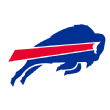
Buffalo Bills
Strength: rushing offense. Under both former offensive coordinator Greg Roman and current coordinator (and interim head coach) Anthony Lynn, the Bills enjoyed one of the most effective running games in the NFL. The Bills led the league in rushing DVOA this season, averaged a league-high 3.82 yards before being touched on their rushing attempts and turned a league-best 29.7 percent of their runs into first downs. They ranked second in carries, first in yards and first in rushing touchdowns. They recorded a ton of volume and were incredibly efficient in the process.
Will they be able to keep that up in 2017? It's hard to say. One critical component of that rushing attack is quarterback Tyrod Taylor, both for what he does as a passer and his role as a running threat in keeping defensive ends at bay when Buffalo runs the read-option, as it did on 90 carries this past season, per ESPN Stats & Information. It seems increasingly likely that the Bills do not intend to exercise what amounts to a two-year, $40 million option on Taylor's contract, which would push Taylor into free agency and leave Buffalo with 2016 fourth-rounder Cardale Jones as the only quarterback on its roster entering the 2017 season.
Weakness: secondary. In addition to the looming crater at quarterback, the Bills will need to rebuild most of their secondary after Rex Ryan did little to help the situation. He did bring through a useful cornerback in 2015 second-rounder Ronald Darby, but Darby took a step backward this year after a promising rookie campaign. While Nickell Robey-Coleman will compete in the slot, the rest of the unit is up for grabs.
No. 1 cornerback Stephon Gilmore never took that leap to consistent stardom many expected, but he's still an above-average starter and will be the second-best cornerback in unrestricted free agency after Trumaine Johnson. The Bills may not be willing to give the 26-year-old a Janoris Jenkins-sized deal (five years, $62.5 million). Safety is also an issue, with 31-year-old Corey Graham slipping this season and strong safety Aaron Williams suffering a nasty neck injury that may jeopardize his career. The Bills don't have many options lying in wait, either; if Gilmore leaves, the only defensive back taken by the Bills in the first four rounds of the draft would be Darby. Whoever takes over will need to rebuild in a division with Tom Brady and Adam Gase lurking.
Coaching emphasis: quarterback. Buffalo's coaching decision has to go hand-in-hand with its options at quarterback for next year, given that Taylor is likely on his way out of town. The problem, of course, is that the Bills will decide on a coach before they figure out what they're going to do at quarterback. If they decide to go after a younger option like Jimmy Garoppolo or one of the passers in a quarterback-unfriendly draft, it behooves Buffalo to go after a coach who can develop quarterbacks, which could be Lynn. If they instead opt for a short-term veteran such as Jay Cutler or Tony Romo to fill the hot seat, they may prefer a defense-minded coach to try to build a team around the great running game and an impressive defense. Jim Schwartz would ironically be a great choice, but given how things went down with him and the Bills two years ago, it's hard to picture him returning to western New York.
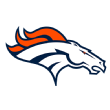
Denver Broncos
Strength: pass defense. To say the Broncos have the league's best pass defense is selling Denver short. Wade Phillips' unit led the league with a minus-32.9 percent DVOA against the pass this season; the second-place Eagles, at minus-13.6 percent, were as close to the Bengals in 15th as they were to the Broncos. The Broncos faced the league's second-toughest slate of offenses and still produced incredible raw statistics, but they look even better by advanced metrics. They were the league's best defense against both No. 1 and No. 2 receivers and the second-best defense against all other wideouts. They were fourth against tight ends and a lowly 14th against running backs.
Weakness: rushing offense. The Broncos are somehow the polar opposite of the Bills' offense, which is better in today's pass-happy NFL, but Denver's rushing woes still managed to sink its offense this season. The Broncos ranked 30th in rushing DVOA this year and averaged just 3.2 yards per attempt on first down, the third-worst rate in the league. Their offensive line, a perennial work in progress during Kubiak's two-year run, never seemed to get settled thanks to injuries and subpar play, while the decision to match C.J. Anderson's offer sheet from Miami worked out far better for the Dolphins, who eventually turned the job over to Jay Ajayi and got superstar production at a fraction of the cost. The running woes didn't make things any easier for first-year starting quarterback Trevor Siemian.
Coaching emphasis: offense. The natural fit for the Broncos seems to be Falcons offensive coordinator Kyle Shanahan, whose stock is at an all-time high after leading Atlanta to a league-high 540 points this season. Shanahan would make some sense. His offense can incorporate many of the same zone-blocking concepts utilized by Kubiak, in part because Shanahan once worked as Kubiak's offensive coordinator in Houston, and Kubiak served as an offensive coordinator in Denver under Shanahan's father, Mike, for 11 years. The Broncos did fire the elder Shanahan in 2008, which may have left a sour taste, but that was before his former starting quarterback, John Elway, took over the organization.
Kyle Shanahan would be a schematic fit at a time when the Broncos are already in transition post-Peyton Manning. With Paxton Lynch scuffling badly as a rookie and a veteran defense playing at the highest level, they're likely to be involved in the bidding for Romo, either via a trade or in free agency. If Kirk Cousins somehow hits the market, Shanahan is also familiar with his former Washington charge, having been the offensive coordinator in D.C. when his father drafted Cousins in 2012.
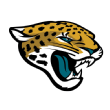
Jacksonville Jaguars
Strength: defense. The Jags finished 13th in defensive DVOA this season with a relatively balanced group (16th against the pass and 12th against the run). While some of that owes to the hefty contracts given to free agents such as Malik Jackson, Jacksonville can head into 2017 with a few homegrown talents on rookie deals. Jalen Ramsey is already a superstar cornerback. Telvin Smith is one of the best 4-3 outside linebackers in football. Yannick Ngakoue produced eight sacks, the fifth-best total for a pass-rusher in an age-21 season since the league started recording sacks in 1982.
2017 will be about maneuvering pieces around. Prince Amukamara is a free agent and Davon House was a bitter disappointment, so the Jags will need to find somebody to play across from Ramsey at cornerback. Myles Jack probably will slot in at middle linebacker for Paul Posluszny. The team will need to find the right role for 2015 third overall pick Dante Fowler Jr., who was anonymous for most of his debut season. There's a lot to like here, though, and it's the most (or perhaps only) positive piece of the legacy Gus Bradley leaves behind after his tenure in Jacksonville.
Weakness: quarterback. The hype for Blake Bortles was far too high heading into 2016, but even Bortles skeptics couldn't have seen his wildly frustrating campaign on the horizon. Bortles' mechanics, a problem heading back to his UCF days, fell apart to a nearly unprecedented degree for a professional quarterback. His numbers fell accordingly, dragging down star wideout Allen Robinson in the process. Bortles' offensive line didn't help matters, with imported left tackle Kelvin Beachum struggling in his first season with the team, but Bortles routinely made poor decisions with the football. Owing perhaps to his considerable raw athleticism, Bortles was actually 14th in the league in QBR when he was pressured in 2016, but he was 29th among 30 qualifying quarterbacks when he wasn't under pressure. Only Ryan Fitzpatrick was worse.
Coaching emphasis: fixing Bortles. A simple rule I've found teams often follow after firing a head coach is that they tend to hire a new leader who represents the opposite of their old coach's strengths. Given that Bradley was a former defensive coordinator with an incessantly sunny disposition, it makes sense that the Jags would target an offense-minded disciplinarian. Wouldn't you know that there's one available who happens to be the most successful coach in team history?
The Jaguars already have interviewed Tom Coughlin, and while he isn't exactly the sexiest hire, he would make sense for where the Jaguars are right now. Coughlin brought along Eli Manning even after a disastrous rookie season. He helped correct the fumble-happy habits of Tiki Barber, which would come in handy for an offense whose lead back, Chris Ivory, fumbled five times on 137 touches this past year. He also has established a reasonably solid professional floor, having won six games or more in each of his previous 19 seasons. His last season below that mark was when Jacksonville went 4-12 as an expansion team in 1995. The Jaguars haven't had a six-win (or better) season since 2010.

Los Angeles Rams
Strength: front four. It was tempting to list Johnny Hekker as the team's biggest strength, given that the Rams lapped the field on punting and punt coverage this year. It's still fair to list Los Angeles' defensive line as its best weapon, but even that has faded with time. Aaron Donald is arguably the most disruptive defender in the league when J.J. Watt is injured, but he's about to get incredibly expensive. Injuries and double-teams have limited Robert Quinn to 19.5 sacks over three seasons after his 19-sack campaign in 2013. Nobody on the vaunted Los Angeles line besides Donald produced more than five sacks this season. And this is the strength of the team!
Weakness: the entire offense. The Rams' offense was like the reverse of the Broncos' defense. It was 32nd in passing DVOA, rushing DVOA and overall offensive DVOA. The Rams averaged 14 points per game in a league in which teams averaged 22.8, the fifth-highest rate in NFL history. Using standardized score, the Rams had the 16th-worst offense since the 1970 AFL-NFL merger and the worst since the Jimmy Clausen-led Panthers of 2010.
Those Panthers drafted Cam Newton the following year, but Los Angeles' first-round pick (No. 5 overall) will be in Tennessee's hands after the Rams traded up to pick Jared Goff. Goff's half-season in the lineup was distressingly bad, highlighted by an unreal sack rate of 11.3 percent. Using the adjusted net yards per attempt stat and adjusting it for era (ANY/A+), Goff posted the worst season since the merger for a passer with 200 attempts or more. It's too early to dismiss Goff, but the Rams need to throw what few resources they have at giving him help.
Coaching emphasis: offensive line. In a season in which several teams have turned around their fortunes behind dominant offensive lines, the Rams should focus on rebuilding theirs to give both Goff and struggling running back Todd Gurley a chance. This has been an issue for the better part of 15 years, having seen both expensive free agents (Jason Brown, Scott Wells) and first-round picks (Alex Barron, Jason Smith, Greg Robinson) fail to develop into even competent players.
An emphasis on offensive line play could lead the Rams to former Raiders head coach Tom Cable, although his work with Seattle's offensive line hasn't exactly received glowing praise over the past couple of seasons. Steelers offensive line coach Mike Munchak has done a great job with Pittsburgh's unit and was a respectable 22-26 as the head coach of a flawed team in Tennessee, albeit while struggling to improve its offensive line. If the Jaguars do let go of Marrone, he could be in play. The best offensive line coach in the league is likely Washington's Bill Callahan, who may profile more as an offensive coordinator than a head coach at this point in his career.
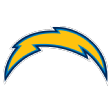
San Diego Chargers
Strength: defense. Quietly, the Chargers have pieced together one of the most underrated defenses in the league. San Diego improved from 28th in defensive DVOA to eighth this season, on the back of key additions such as Joey Bosa and Casey Hayward. The Chargers created a ton of takeaways, forcing turnovers on 14.5 percent of opposing possessions, the third-highest rate in the league behind the Chiefs and Buccaneers.
While the Chargers' next head coach may retain (or be) defensive coordinator John Pagano, whoever is running their defense will be blessed with a deep, talented roster. Jason Verrett, one of the best cornerbacks in football, should return from a partially torn ACL. Brandon Mebane will likely be back as a run-stopping defensive tackle. Manti Te'o will be part of the rotation at inside linebacker. If the Chargers can re-sign free agent Melvin Ingram, they really won't have any weaknesses on defense outside of safety. This unit should remain good.
Weakness: ownership. The Chargers may have as talented a roster as any of the available vacancies when everybody's healthy, but it's difficult to imagine them attracting a top-level head coach given the uncertainty surrounding the organization. It's still unclear whether the Chargers will be in San Diego come 2017, and this is the same ownership group that unnecessarily ran Eric Weddle out of town and held an irrationally firm line on Bosa's contract earlier this year, as they have with rookie deals for years now. Bosa held out in camp, hurt his hamstring as he tried to get ready to play, and then missed the first month of the season as the Chargers lost three games by a combined 11 points. You think Mike McCoy is happy San Diego held a firm line in negotiating now?
Coaching emphasis: management. McCoy had his strengths during his time in San Diego, notably rejuvenating Philip Rivers' career by installing a shorter passing game, but his teams struggled to capitalize on their talent. Injuries were a perennial problem, peaking with the surreal injury stacks of 2016. McCoy also seemed to make the wrong decision more often than not late in the fourth quarter of close games, getting aggressive when he needed to be conservative and vice versa. He managed to skate past his bad decisions early in his tenure, but his game management cost the Chargers in 2015 and 2016.
McCoy shares some parallels with Coughlin during the end of his run with the Giants, and indeed, Ben McAdoo's team has been far more aggressive in key moments and much healthier than the teams of years past. Someone like Chip Kelly would make sense, given Kelly's familiarity with analytics and emphasis on sport science, but it's likely too early to give Kelly another head-coaching job.
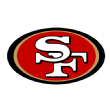
San Francisco 49ers
Strength: running game. In his lone season in charge of the 49ers, Kelly was able to get some semblance of a rushing attack cooking with Carlos Hyde and Colin Kaepernick. The 49ers were 11th in rushing DVOA, which is useful given how they ranked 28th or worse in every other offensive or defensive component of DVOA. You also might assume that the 49ers didn't run the ball very frequently by virtue of being behind the vast majority of the time, but their 458 carries in 2016 ranked fifth. They also averaged 4.95 yards per carry on first-and-10 rushes, which ranked sixth in the league, just behind the Cowboys.
Weakness: the entire defense. You get the idea. To pick something specific, the 49ers were the worst team in the league against deep passes, which the NFL defines as throws traveling 16 yards or more in the air. Opposing passers went a combined 55-of-105 for 1,559 yards with 11 touchdowns and one pick on these throws, yielding league-worst figures in passer rating (128.8) and QBR (98.8).
Coaching emphasis: hope. When 49ers CEO Jed York was quoted on Monday about how owners can't be fired, he underlined just how difficult it will be for anybody to succeed in San Francisco right now. The 49ers will be hiring their fourth head coach in four seasons after letting Jim Harbaugh leave after losing a power struggle to Trent Baalke, who was fired this weekend. Then again, the last time the 49ers did something like this was between 1975 and 1979, when they actually had six coaches at the helm for at least seven games apiece during a five-year span. They eventually stumbled on the right guy, though, as the coach they settled on for that 1979 campaign was Bill Walsh. The 49ers can't expect to hire another Hall of Famer, but a source of stability would be nice.
